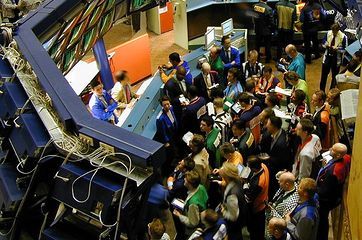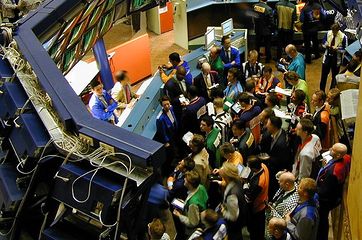Only 0.1 per cent of FTSE 100 emissions are offset
Financial companies in the FTSE 100 have made some progress in voluntary carbon offsetting, but more companies need to follow suit, according to a new report by Carbon Retirement. They particularly urge higher-carbon intensive companies to offset, although highlight the changes all low-carbon companies can make.

 FTSE 100 companies must do more to lower their collective environmental impact, according to a new report.
FTSE 100 companies must do more to lower their collective environmental impact, according to a new report.
The report by Carbon Retirement, an offsetting company, found only 0.1 per cent of FTSE 100 emissions are being offset, almost exclusively by low polluters.
While the financial sector has made progress, with 61 per cent of financial companies offsetting, Carbon Retirement urge other companies, particularly medium carbon-intensity sectors to follow suit.
Jane Burston, Director of Carbon Retirement and report co-author, said, “Each year we see new companies going carbon neutral, or announcing their use of carbon offsets for some part of their operation. The financial sector in particular is very well represented in this space, with the majority of financial companies in the FTSE 100 using carbon offsets.”
“We’d like to see companies in other, more carbon intensive, sectors considering how they might use carbon offsets. Only then will we see the volumes of reductions start to marry up with what science demands is necessary.”
90 per cent of companies on the FTSE 100 that offset are non-carbon intensive, and therefore can offset relatively large proportions of their emissions at low-cost.
The report found 21 FTSE 100 companies offset, with six of these companies claiming to be carbon neutral, and this is confined to the financial, consumer discretionary and consumer staples companies.
Meanwhile there is no offsetting taking place in IT, Healthcare or Telecommunications sectors all of which have low-carbon intensity.
Authors conclude if the FTSE 100 companies are to make meaningful steps should then all companies will have to offset.
If all 67 non-carbon intensive companies on the FTSE 100 went carbon neutral, 39 million tonnes more could be offset, almost doubling the size of the global voluntary market.
Carbon Retirement urge medium-carbon intensity businesses to look at their supply chain and consumer use products and see what part reduction and offsetting could play.
While high-energy intensive companies must buy carbon credits in order to offset their emissions, lower-intensive companies do not operate under the same regulations.
While low-intensive companies can offset emissions relatively cheaply, for medium companies the process is more costly, according to the report.
However, two medium intensity companies, Ben and Jerry’s and Reckitt Benckiser, have bucked the trend and offset emissions.
Carbon offsetting remains a controversial method of reducing emissions . Offsetting schemes are heralded by some as a way to reduce emissions whilst getting involved in projects in the developing world. Others say the methods are ineffective and that offsetting does not result in emissions reductions; it detracts focus from the need for companies to reduce their emissions at source.
The report authors concluded that offsets in the FTSE 100 must be verified by a high quality third-party and methods used should be disclosed so that claims can be assessed, in order to really make an impact.
The report is based on publicly available data regarding 2009-10, accessed February-April 2011.
Image: Perpetualtourist2000 | flickr





